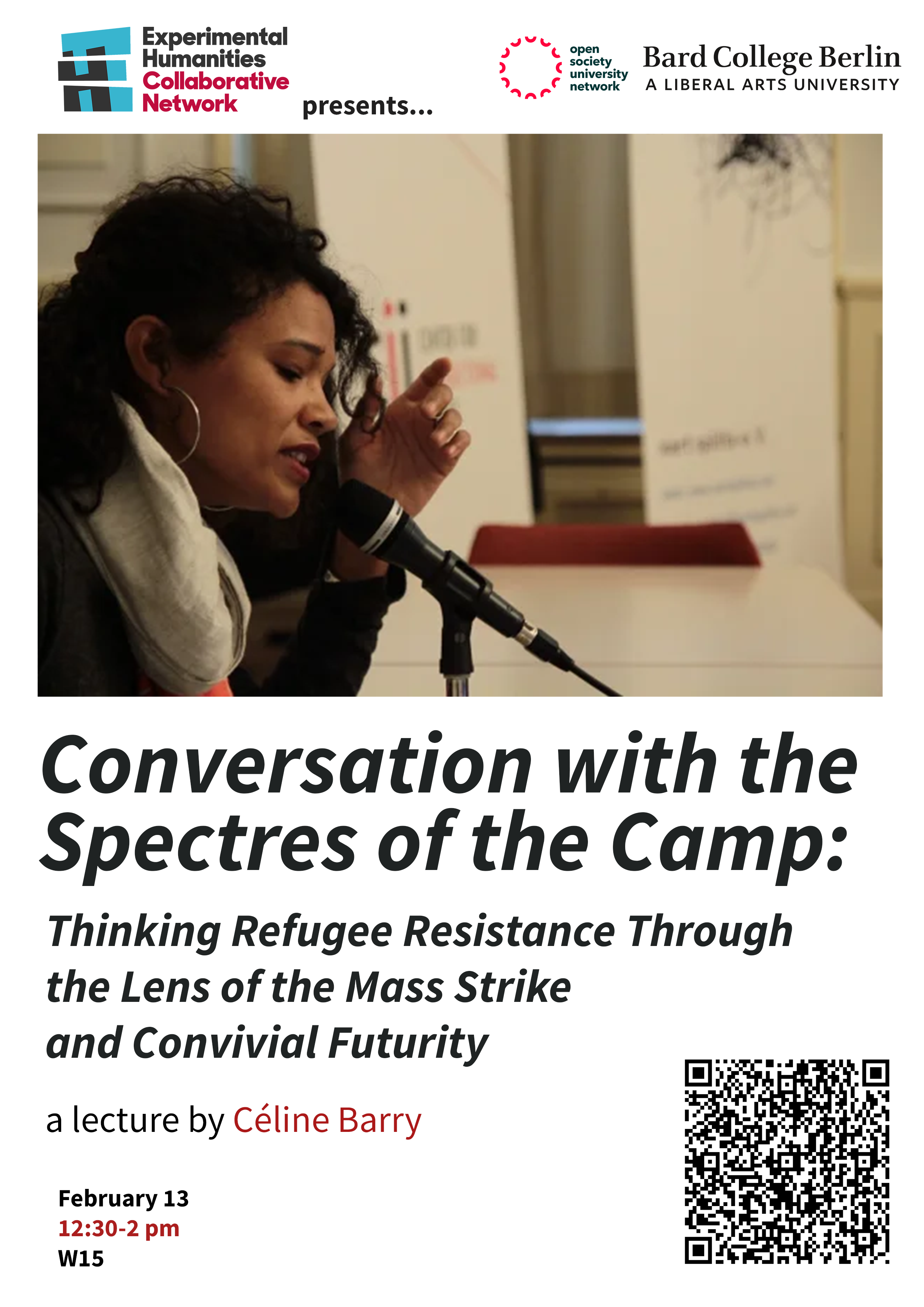
Conversation with the Spectres of the Camp: Thinking Refugee Resistance Through the Lens of the Mass Strike and Convivial Futurity
Thursday, February 13, 2025
W15 Cafe
12:30 pm – 2:00 pm CET/GMT+1
Drawing on her current research on the feminist decolonization of borders, Céline Barry will explore the revolutionary practices of the 2012 O-Platz Refugee Strike. To trace anti-capitalist transformational processes, Barry first seeks to understand in what sense the movement represents a specter of Marx (Marx and Engels, 1847) or, in Rosa Luxemburg’s (1906) terms, a wave in the globalized ocean of proletarian struggles: the mass strike.12:30 pm – 2:00 pm CET/GMT+1
Barry will engage in a spectral dialogue with Iranian refugee Mohammad Rahsepar, whose suicide in a refugee camp sparked the O-Platz movement. What can we learn from him? As we will see, the reasons Mohammad and his community gave for his death point to the necropolitical dimension of border regimes, which—alongside the direct killings occurring at the external(ized) borders of the EU and the exploitation and precarization they produce—also engender slow death through camp detention. Accordingly, the emancipatory goal of liberation from the camp occupies a central place in the movement Mohammad spearheaded. In this process, new notions of freedom are being generated. In the final part of her talk, Barry will turn to the hopeful futures that activists tested through their political practice. The movement teaches us how care and critical intersectional politics can become foundational for a rehumanizing, convivial (Gilroy, 2009) future.
Presented by the Experimental Humanities Collaborative Network, as part of the Thinking Toward Feminist Futures event series.
Dr. Céline Barry is a postdoctoral researcher at the Center for Interdisciplinary Women’s and Gender Studies (ZIFG) at Technische Universität Berlin, where she teaches courses on feminism, race, and intersectionality in postcolonial contexts. Her work is rooted in a commitment to critical social research practices, grounded in everyday life and incorporating creative forms of expression. In her research, Barry focuses on African and Black feminist movements and theories, which she views as essential to decolonization processes. She is also deeply committed to the decolonization of education, collaborating with colleagues to reimagine curricula, transform institutional processes, and foster equitable transnational academic relations. Dr. Barry serves as a board member of both the FG DeKolonial e.V. association for postcolonial, decolonial, and race-critical theory and practice, and the migrant umbrella organization Migrationsrat Berlin e.V.
For more information, e-mail [email protected].
Time: 12:30 pm – 2:00 pm CET/GMT+1
Location: W15 Cafe